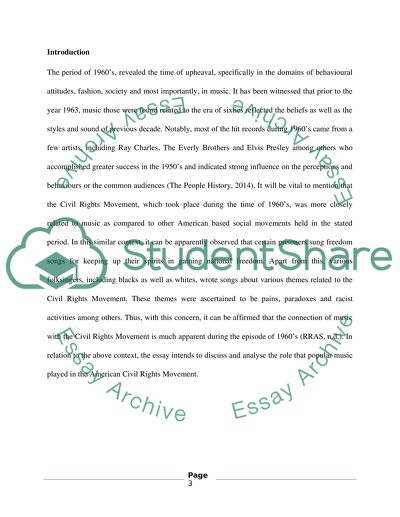Cite this document
(“What role did popular music play in the American civil rights movement Essay”, n.d.)
Retrieved from https://studentshare.org/music/1684862-what-role-did-popular-music-play-in-the-american-civil-rights-movement-your-answer-should-include-at-least-two-case-studies-which-connect-musicians-to-particular-historical-events-of-the-1950s-or-1960s
Retrieved from https://studentshare.org/music/1684862-what-role-did-popular-music-play-in-the-american-civil-rights-movement-your-answer-should-include-at-least-two-case-studies-which-connect-musicians-to-particular-historical-events-of-the-1950s-or-1960s
(What Role Did Popular Music Play in the American Civil Rights Movement Essay)
https://studentshare.org/music/1684862-what-role-did-popular-music-play-in-the-american-civil-rights-movement-your-answer-should-include-at-least-two-case-studies-which-connect-musicians-to-particular-historical-events-of-the-1950s-or-1960s.
https://studentshare.org/music/1684862-what-role-did-popular-music-play-in-the-american-civil-rights-movement-your-answer-should-include-at-least-two-case-studies-which-connect-musicians-to-particular-historical-events-of-the-1950s-or-1960s.
“What Role Did Popular Music Play in the American Civil Rights Movement Essay”, n.d. https://studentshare.org/music/1684862-what-role-did-popular-music-play-in-the-american-civil-rights-movement-your-answer-should-include-at-least-two-case-studies-which-connect-musicians-to-particular-historical-events-of-the-1950s-or-1960s.


